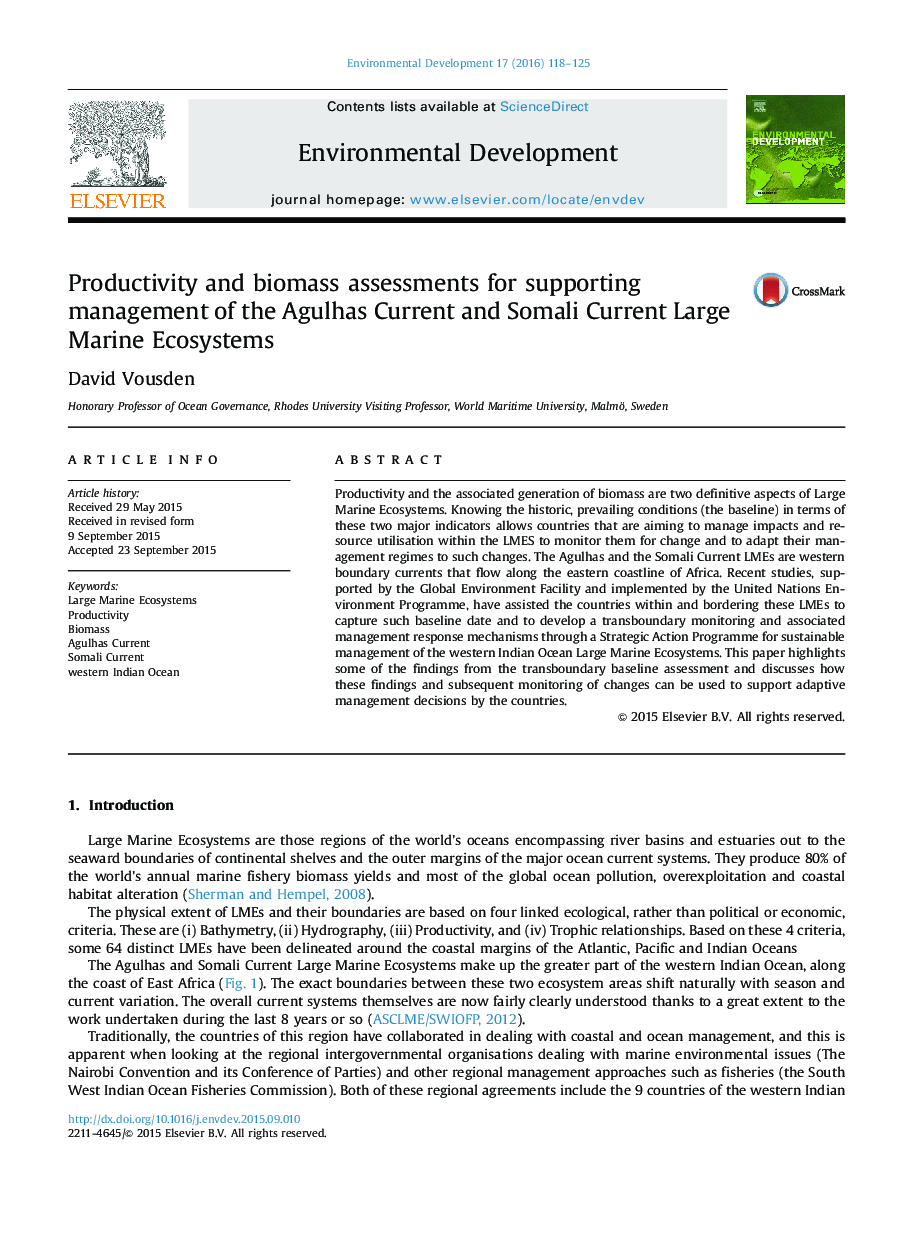| Article ID | Journal | Published Year | Pages | File Type |
|---|---|---|---|---|
| 4391379 | Environmental Development | 2016 | 8 Pages |
Abstract
Productivity and the associated generation of biomass are two definitive aspects of Large Marine Ecosystems. Knowing the historic, prevailing conditions (the baseline) in terms of these two major indicators allows countries that are aiming to manage impacts and resource utilisation within the LMES to monitor them for change and to adapt their management regimes to such changes. The Agulhas and the Somali Current LMEs are western boundary currents that flow along the eastern coastline of Africa. Recent studies, supported by the Global Environment Facility and implemented by the United Nations Environment Programme, have assisted the countries within and bordering these LMEs to capture such baseline date and to develop a transboundary monitoring and associated management response mechanisms through a Strategic Action Programme for sustainable management of the western Indian Ocean Large Marine Ecosystems. This paper highlights some of the findings from the transboundary baseline assessment and discusses how these findings and subsequent monitoring of changes can be used to support adaptive management decisions by the countries.
Related Topics
Life Sciences
Environmental Science
Ecology
Authors
David Vousden,
